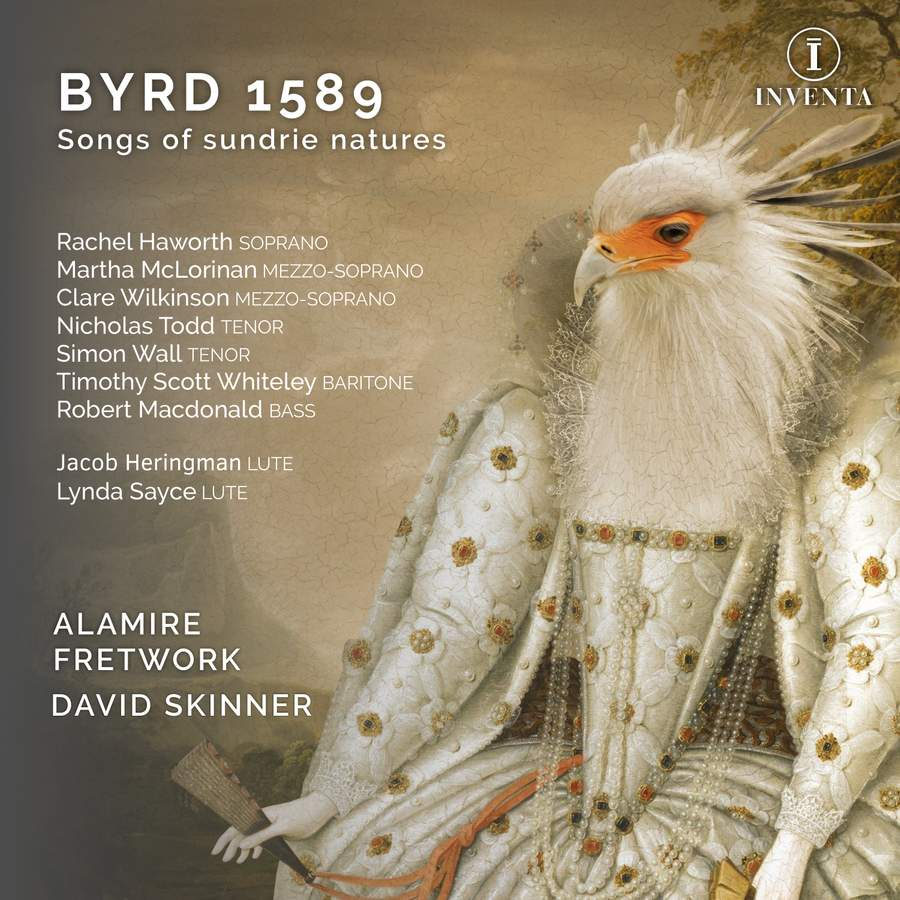Byrd 1589: Songs of sundrie natures
Alamire, Fretwork, David Skinner
Inventa INV1011. 2 CDs. 53’18+69’19=122’37

Following their 2021 recording of Byrd’s first song collection, the 1588 Psalmes, Sonets & Songs of sadnes and pietie (reviewed here), Alamire and Fretwork turn to what Byrd described as the result of his being “encouraged thereby, to take further paines therein, and to make the pertaker thereof, because I would shew my selfe gratefull to thee for thy loue, and desirous to delight thee with varietie, whereof (in my opinion) no Science is more plentifully adorned then Musicke“. The ensuing 1589 collection “Songs of sundrie natures” was intended “to serue for all companies and voyces: whereof some are easie and plaine to sing, [while] other more hard and dificult“. It is divided into songs of 3, 4, 5 and 6 parts and offers a wide choice of music for a wide range of musical abilities – a sensible financial arrangement, no doubt.
This Alamire and Fretwork release (in the 400th Byrd anniversary year) is particularly welcome as it includes many pieces that have not been recorded before. Only three of the seven opening Penitential Psalms have been recorded and very few of the other pieces have been regularly heard in recordings or concerts. The recording follows the order of the pieces that Byrd intended, starting with the 3-part pieces and working up to the 6-parters. With such a wide range of musical moods and textural matter, there is inevitably a range of interpretations, but all seem entirely appropriate to me. The sacred and secular pieces are differentiated by having the former for the singers alone, the instruments of Fretwork joining in for the secular pieces. This may not necessarily be historically appropriate but it works well in the context
As is to be expected from these two musical super groups, the singing and instrumental playing is outstanding. Particular mention must go to singers Clare Wilkinson, Martha McLorinan and Rachel Haworth and lutenists Jacob Heringman and Lynda Sayce in the three-part secular songs.
